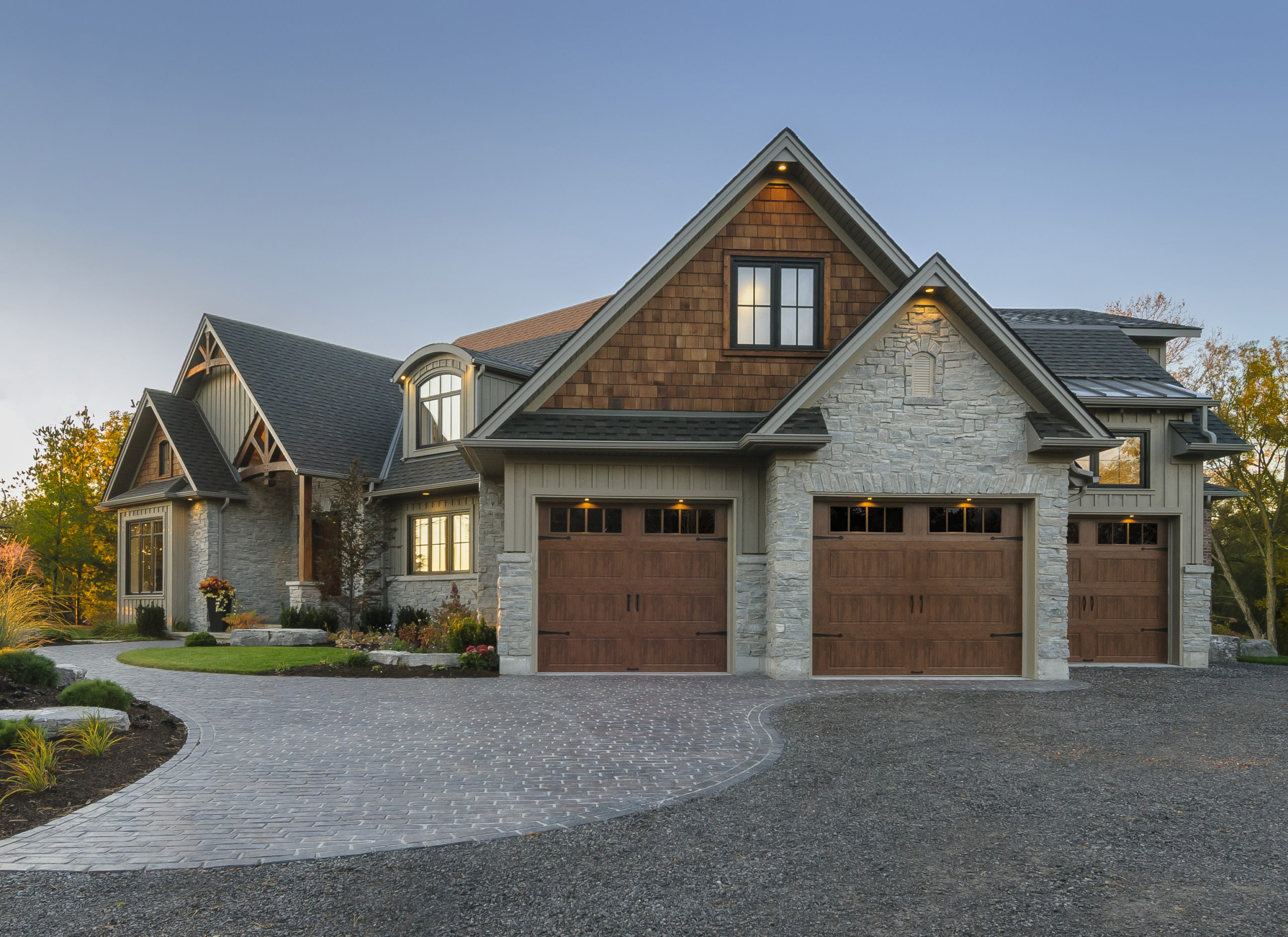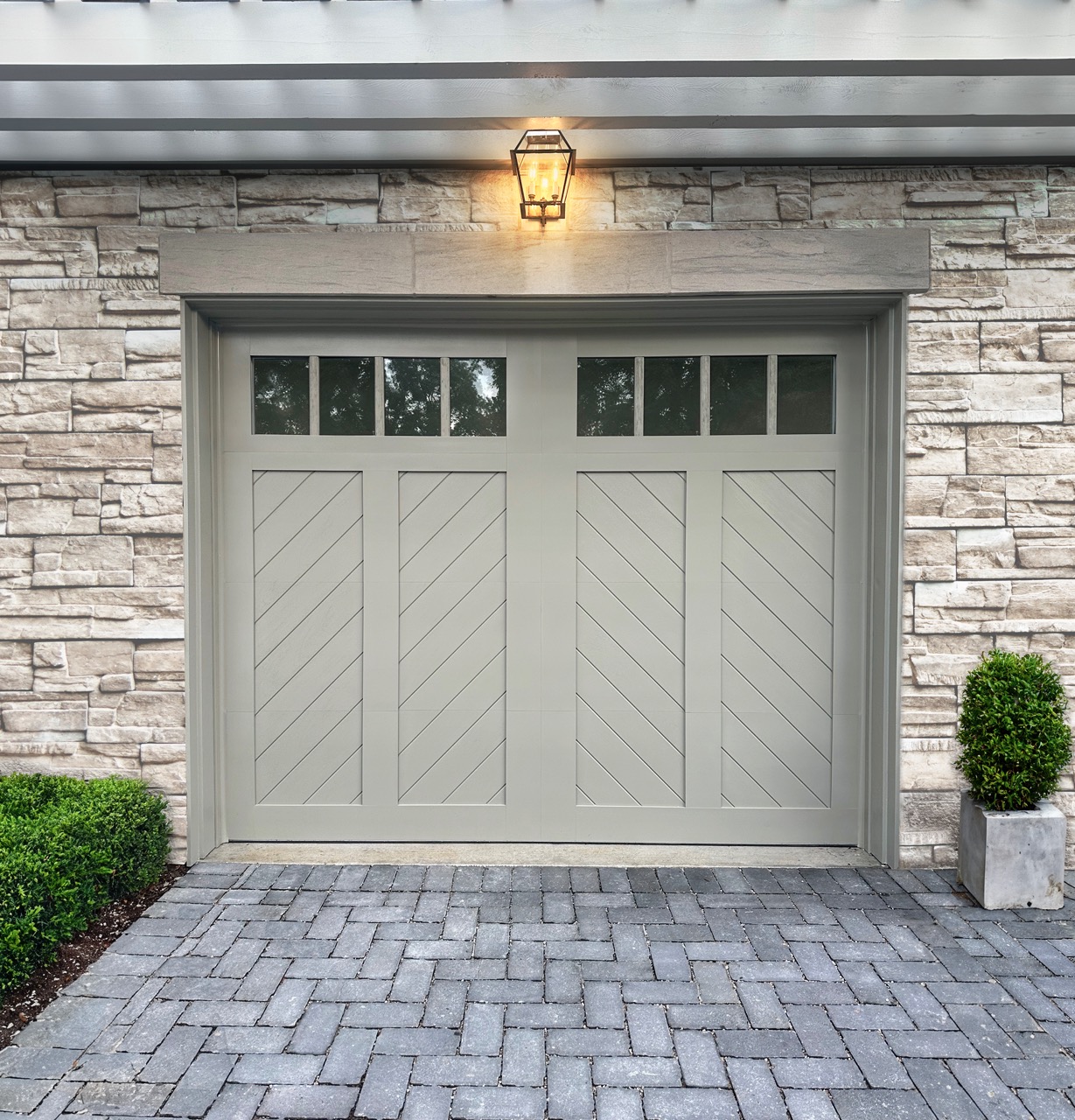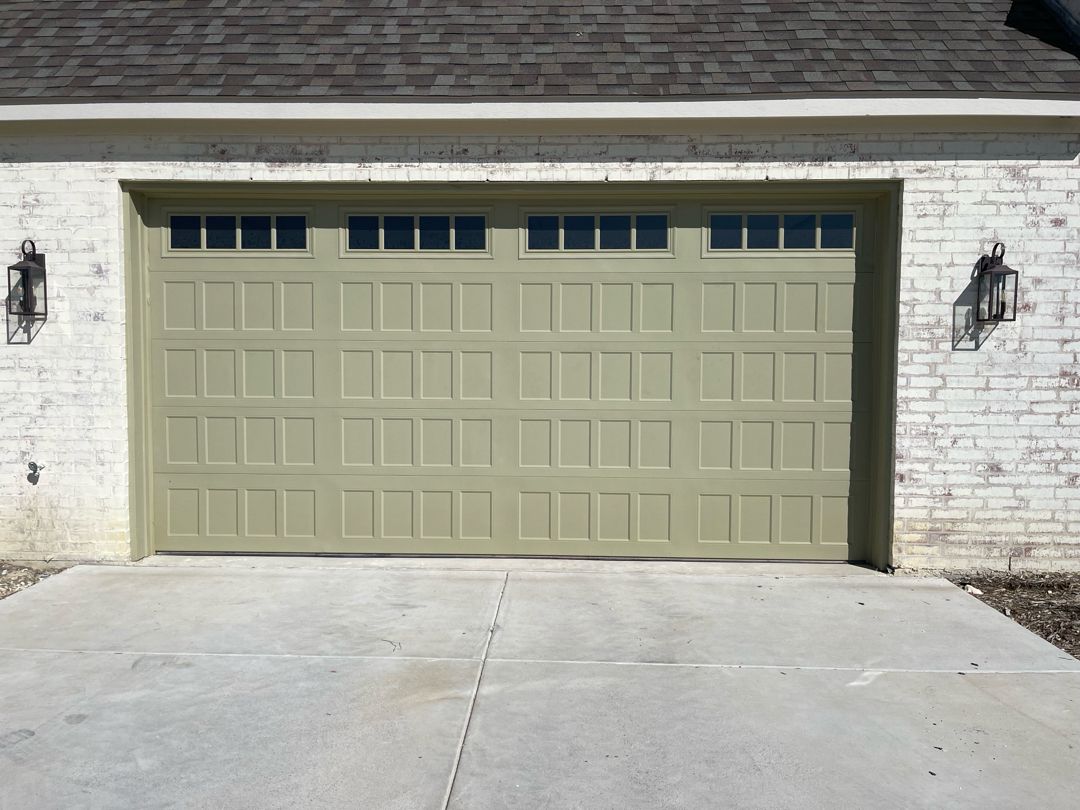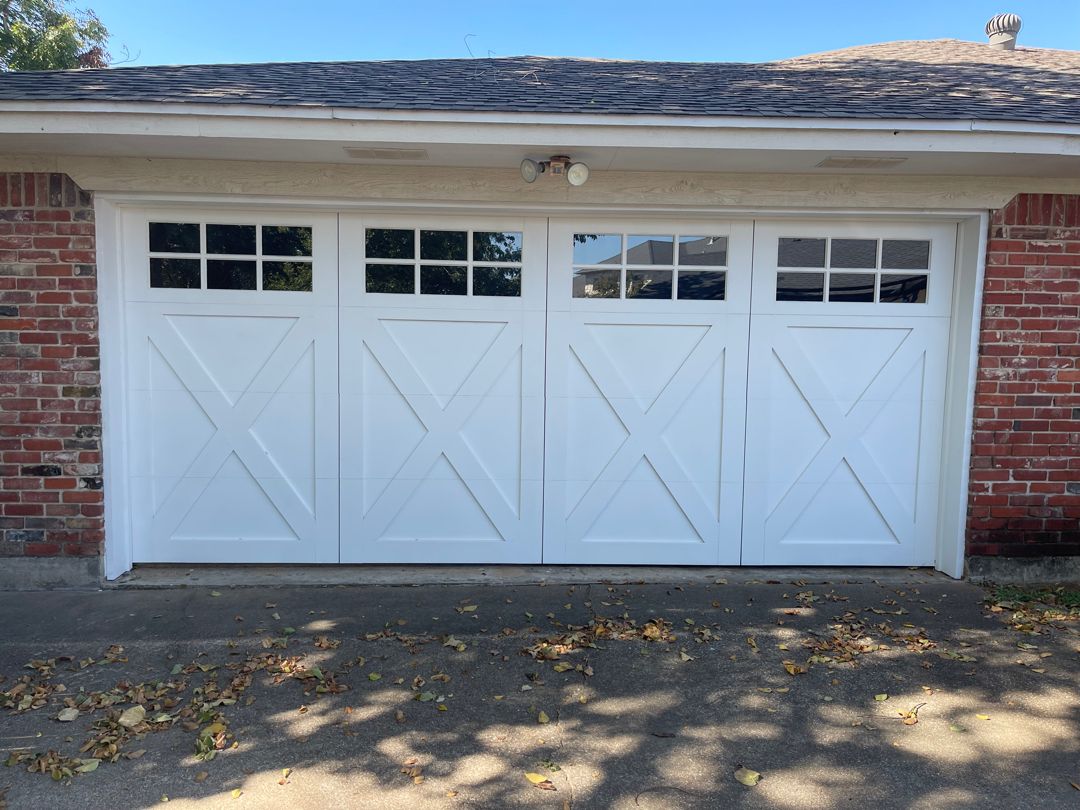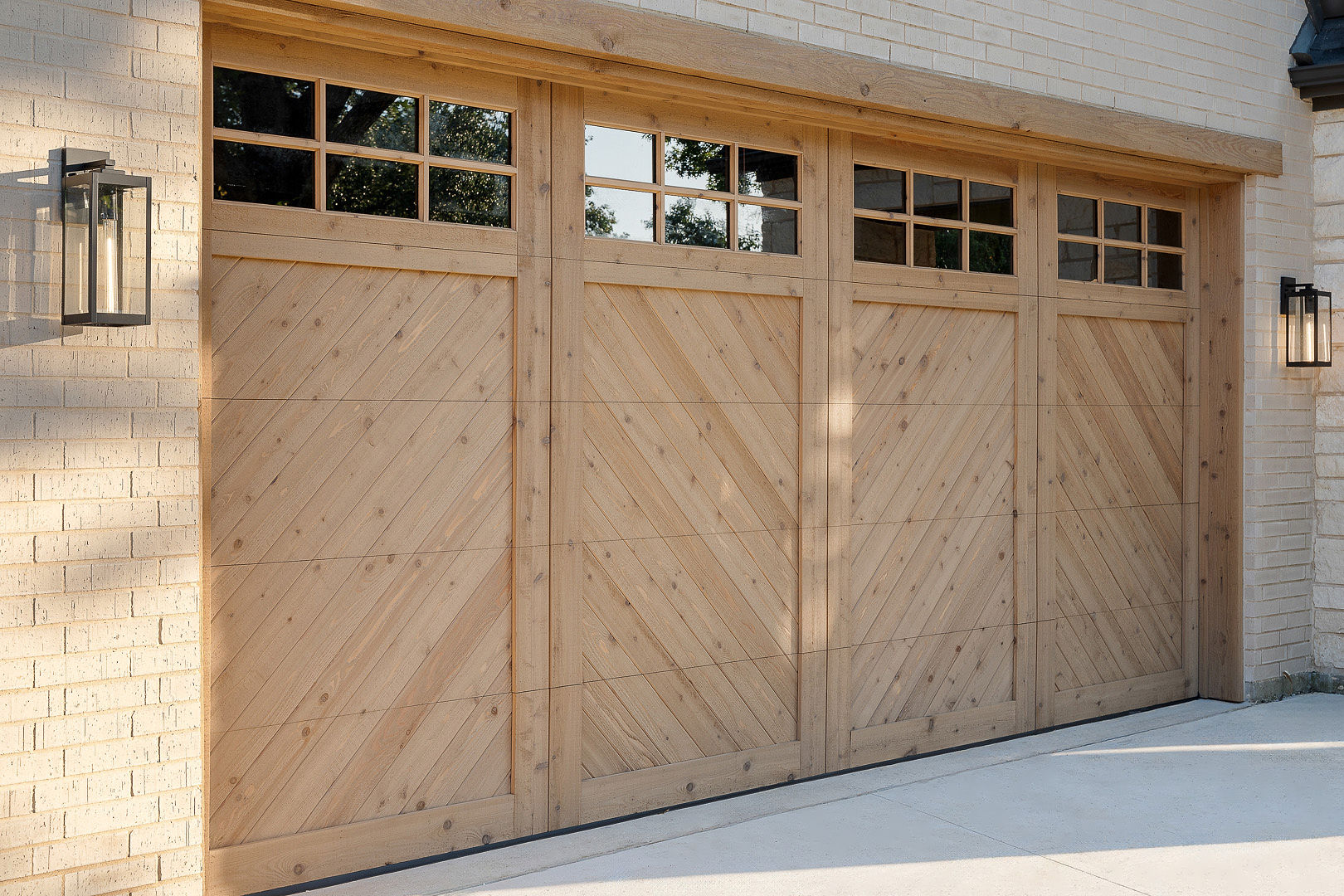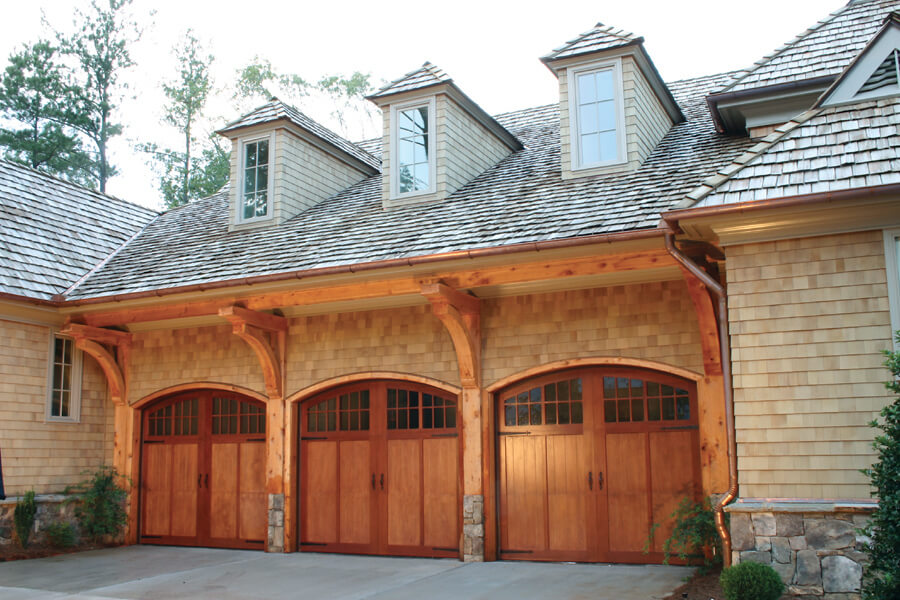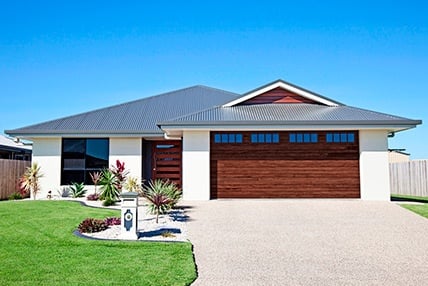A new garage door is statistically the best return on investment for your home. It is greater than the return on a new kitchen, master bathroom, wood deck addition, or even a new front door.
Why? Most homes have a garage door that faces the curb, and that significant chunk of square footage can be eye candy or an eye sore.
Whether you are optimizing for ROI or want a more attractive garage door, you need a firm grasp on the factors influencing garage door replacement costs. At Doorvana, we help homeowners through the garage door-buying process by explaining how the options impact price.
Garage Door Replacement Costs by Metro in 2024
The Journal of Light Construction produces research each year to determine the average costs of garage door replacement. These price targets include:
- Removal and haul-off of an existing garage door
- A new 16×7 traditional, steel, insulated garage door with glass
- Connected to the existing opener
- New tracks, hardware, and garage door thermal weatherstripping
Region Markets Double Garage Door Job Cost Resale Value National Average USA $4.5K+ $8.5K+ East North Central Michigan, Illinois, Indiana, Ohio, Wisconsin $4K+ $6.5K+ East South Central Alabama, Kentucky, Tennessee, Florida $4K+ $7K+ Middle Atlantic New York, Pennsylvania $4K+ $9K Mountain New Mexico, Idaho, Colorado, Arizona, Utah $4.5K+ $8K+ New England Massachusetts, Vermont, Connecticut, Maine $4K+ $14K Pacific Oregon, Washington, California $4.5K+ $11K+ South Atlantic North Carolina, Georgia, Maryland, South Carolina, Virginia, DC $4.5K+ $9K+ West North central Kansas, Iowa, Minnesota, North Dakota, Missouri $4.5K+ $7K+ Ark La Tex Texas, Arkansas, Louisiana $4.5K+ $6.5K+
Factors That Influence Garage Door Replacement Costs
Everything impacts the cost of a new garage door, from the size and material to options like glass, insulation, and decorative hardware.
1. Garage Door Materials
At Doorvana, we design and build wood garage doors, so we are a bit biased in our opinion that wood garage doors are the best. However, we want to share the pros and cons of each material so you can make up your mind.
Material Pros Cons Shapes & Sizes Price Range Wood Natural material, popular, durability, unlimited designs, unlimited finishes, temperature regulation, warranty Maintenance Unlimited $4,000 to $20,000+ Steel Affordable, popular, readily available, warranty Limited designs, sameness, durability Limited $2,000 to $10,000+ Aluminum Modern, streamlined Expensive, constrained by home style, warranty Limited $6,000 to $20,000+ Composite Appearance Maintenance, warranty, designs, finishes, durability Limited $7,500 to $20,000+
2. Garage Door Sizes
Garage door size sets the stage for the cost of a replacement garage door. Single garage doors are roughly half the price of doubles, and prices jump roughly every foot of increased width and height, with significant increases for doors taller than 8′ and wider than 18′.
Garage Door Size Notes Price Range Single Garage Doors Built for one vehicle, widths range from 8' to 10' wide by 7' to 10' tall $2,000 to $10,000+ Double Garage Doors Most doors over 10' wide are considered double garage doors, built to accommodate two vehicles, most are 16' to 18' wide by 7' to 9' tall, 20' wide doors are significantly more than 18' doors because of the stiles and hardware requirements $3,500 to $20,000+
3. Garage Door Designs
Traditional garage door styles will always be less expensive because they are mass-produced and usually made from stamped steel sections. They require minimal handling from manufacturers and can be replicated quickly and efficiently.
It can take weeks to finalize the details of a Carriage House garage door. From wood species to design and finish, these details are carried out by hand using woodworking tools and equipment. The man hours that go into carriage house garage doors can top 20 to 30, leading to a more valuable and personalized garage door.
The majority of modern garage doors are made from aluminum and glass. The glass must be cut and installed in each opening, so a 16×8 garage door could have 40 pieces. This process, from glass manufacturing to installing the glazing, takes time and money. Recently, steel, wood, composite vertical, and horizontal plank garage doors have become more modern garage door options.
| Garage Door Style | Materials | Personalization |
|---|---|---|
| Carriage House | Wood, steel, composite | Unlimited |
| Traditional | Steel | Limited |
| Modern | Aluminum, steel, wood | Limited |
4. Garage Door Insulation
Insulation is essential, as it can significantly impact your garage’s energy efficiency and comfort. While it adds to the initial cost, it can lead to long-term savings on heating and cooling.
Polystyrene is the standard and budget-friendly insulation option, typically adding $500 to $1,000 to the door cost. Polyurethane is more expensive but effective, adding $1,000 or more to the total price if you want superior insulation and a higher R-value.
5. Windows
Personalized window design makes a huge difference in your garage door. From eyebrow tops to simulated divided lites, garage door windows can be incorporated into any style and material.
6. Hardware and Accessories
The finishing touches can significantly affect your garage door’s overall look and functionality. Basic hardware like handles and hinges typically costs $200 or more per set. If you want to add a touch of style with decorative hardware, be prepared to spend anywhere from $300 to $500+, depending on the design and materials.
7. Garage Door Labor Costs
The installation process is crucial to your garage door replacement and contributes significantly to the overall cost. Here’s a typical installation process and the associated costs:
- Removal of the Old Door: The first step involves carefully removing your existing garage door and its associated hardware.
- Cost: $50 – $200 (may be included in the overall installation cost)
- Installing the New Door: The new garage door is carefully positioned and secured in the opening. Tracks and springs are installed and adjusted for smooth operation.
- Cost: This is the main component of labor costs and can range from $300 to $600 for a basic installation.
- Connecting the Opener: If you’re installing a new garage door opener or reusing your existing one, the installers will connect it to the door and ensure it’s properly programmed and functioning.
- Cost: $100 – $300 (if a new opener is being installed, this cost may be included in the opener price)
- Final Adjustments and Testing: The installers will make final adjustments to the door, tracks, and opener to ensure smooth and safe operation. They will also test the safety features and provide instructions on operating the new door.
- Cost: Usually included in the overall installation cost.
8. Additional Factors
Beyond the main components, several other factors can influence the final cost.
- Your location also plays a role, as labor and material costs can vary by your region. Expect to pay more in expensive markets like the East and West Coasts.
- Finally, if your garage is difficult to access, it can increase installation time and labor costs.
Should you replace your garage door?
When to Consider DIY Garage Door Installation
While replacing a garage door might seem straightforward, it’s a complex project involving heavy lifting, electrical wiring, and precise adjustments. However, there are certain situations where DIY installation could be a viable option:
- You have significant experience with construction and electrical work: If you’re a seasoned DIYer with a strong understanding of construction principles, electrical systems, and the use of power tools, you might have the skills necessary to install a garage door.
- You have access to the necessary tools and assistance: Garage door installation requires specialized tools, including a level, power drill, socket set, and possibly a torsion spring winding bar. You’ll also need at least one other person to help lift and position the heavy door panels.
- You’re comfortable with potential risks and troubleshooting: DIY installation has inherent risks, such as injury or damage to the door or your property. It would be best if you were prepared to troubleshoot any issues that arise during or after the installation.
- You’re working with a standard, single-car garage door: Installing a standard-sized, single-car garage door is less complex than installing a larger, double-car door or one with custom features.
Benefits of Hiring Professionals
In most cases, hiring professional garage door installers offers significant advantages:
- Safety: Garage doors are heavy and under high tension, making installation potentially dangerous. Professionals have the experience and safety training to minimize risks.
- Expertise and Efficiency: Professionals have the knowledge and specialized tools to ensure the door is installed correctly and efficiently, saving you time and potential frustration.
- Warranty: Most professional installers offer warranties on their labor and the door itself, providing peace of mind in case of problems.
- Correct Installation: Proper installation ensures the door operates smoothly, safely, and efficiently, maximizing its lifespan and minimizing future repairs.
- Troubleshooting and Adjustments: Professionals can identify and address any issues during installation, ensuring the door functions optimally.
Ultimately, the decision to DIY or hire a professional depends on your skills, experience, comfort level with risk, and the complexity of the installation. If you have doubts about your ability to safely and correctly install a garage door, it’s always best to err on the side of caution and hire a professional.
Upgrade Your Home with Affordable Excellence
Ready to transform the look and functionality of your home? Discover the latest in affordable garage door solutions with Doorvana. Don’t let outdated or damaged garage doors drag down your home’s value and appeal. At Doorvana, we offer a variety of styles and materials to match your home’s aesthetic and budget.
Get a free quote today and learn how to elevate your home’s curb appeal.
This post was updated in March of 2025.

